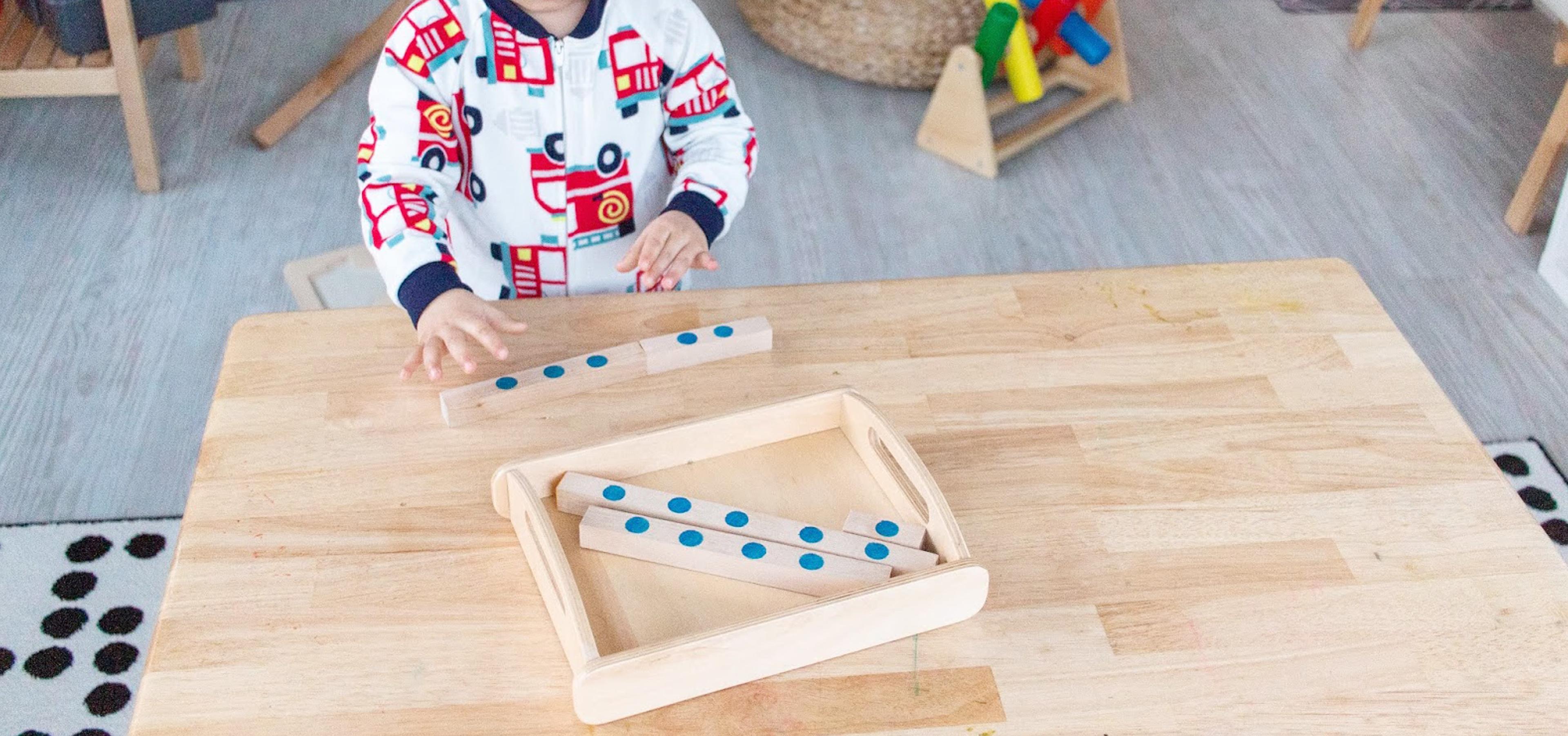Montessori education is a child-centred approach that is focused on fostering independence, curiosity, and a love of learning. Montessori schools use a unique curriculum that is designed to meet the needs of children at various developmental stages. This curriculum is based on the five areas of the Montessori curriculum: Practical Life, Sensorial, Language, Mathematics, and Culture.

Practical Life:
The Practical Life area of the Montessori curriculum focuses on activities that promote independence, concentration, coordination, and order. Activities in this area include pouring, spooning, washing, and polishing. These activities help children develop fine motor skills, as well as cognitive and social skills. Practical Life activities also help children learn how to take care of themselves and their environment.
Sensorial:
The Sensorial area of the Montessori curriculum focuses on activities that help children refine their senses. These activities include matching, sorting, and grading objects by size, shape, colour, texture, and sound. By exploring the world through their senses, children develop an understanding of concepts such as pattern, sequence, and order.
Language:
The Language area of the Montessori curriculum focuses on activities that help children develop oral and written language skills. Activities in this area include storytelling, conversation, phonetic awareness, and writing. Montessori schools use a phonics-based approach to teaching reading and writing, which involves teaching children the sounds that letters make and how to blend them together to form words.
Mathematics:
The Mathematics area of the Montessori curriculum focuses on activities that help children develop mathematical concepts and skills. Activities in this area include counting, sorting, patterning, and geometry. Montessori schools use a hands-on approach to teaching mathematics, which involves using manipulatives such as beads and rods to help children visualise mathematical concepts.
Culture:
The Culture area of the Montessori curriculum focuses on activities that help children develop an understanding of the world around them. Activities in this area include studying geography, history, science, and art. Montessori schools use a holistic approach to teaching culture, which involves integrating various subjects into a unified curriculum.
In summary, Montessori schools use a unique curriculum that is designed to meet the needs of children at various developmental stages. The curriculum is based on the five areas of the Montessori curriculum: Practical Life, Sensorial, Language, Mathematics, and Culture. By focusing on these areas, Montessori schools help children develop independence, curiosity, and a love of learning that will serve them well throughout their lives.

